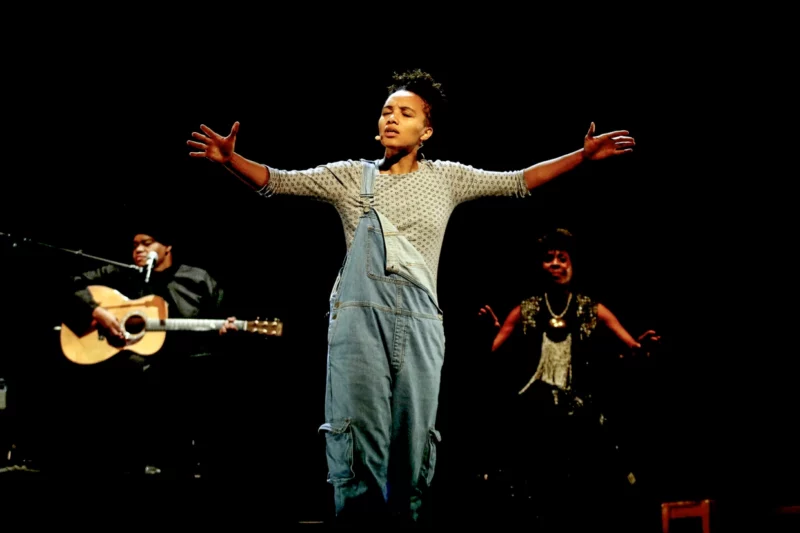An opera based on an Octavia Butler novel has been decades in the making
Share
Explore Our Galleries
Breaking News!
Today's news and culture by Black and other reporters in the Black and mainstream media.
Ways to Support ABHM?
By Tracey Anne Duncan, TODAY

Author Octavia E. Butler has challenged the boundaries of space and time. Now her work is influencing the stage.
Butler’s 1993 novel, “Parable of the Sower,” is heading to Lincoln Center in the form of an opera by the celebrated librettist Toshi Reagon, co-designed with her mother, the acclaimed musician and activist Bernice Johnson Reagon.
“Octavia E. Butler’s Parable of the Sower” will make its New York City debut on July 13.
Butler’s story is set in 2024, at a time when the U.S. is descending into climate disaster-fueled chaos and the government is becoming increasingly fascist.
Toshi Reagon said that the timing of the show makes sense. “It’s really on time because it’s reflecting the reality that we’re all living in, whether you know the book or not,” she said. In the earlier days of the production’s decadeslong development, Reagon said that she didn’t think we — as a country or a planet — would be anywhere near the conditions described in the book in 2024. The pandemic changed her outlook.
Check out the original article for information about the novel and play.
Another of Butler’s famous novels was recently adapted for the screen.









Comments Are Welcome
Note: We moderate submissions in order to create a space for meaningful dialogue, a space where museum visitors – adults and youth –– can exchange informed, thoughtful, and relevant comments that add value to our exhibits.
Racial slurs, personal attacks, obscenity, profanity, and SHOUTING do not meet the above standard. Such comments are posted in the exhibit Hateful Speech. Commercial promotions, impersonations, and incoherent comments likewise fail to meet our goals, so will not be posted. Submissions longer than 120 words will be shortened.
See our full Comments Policy here.